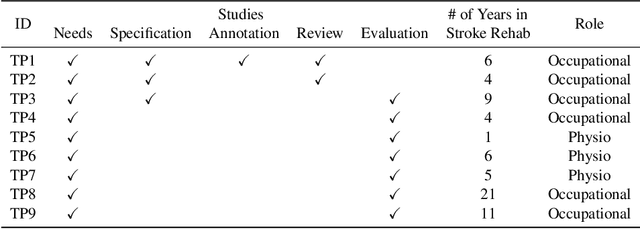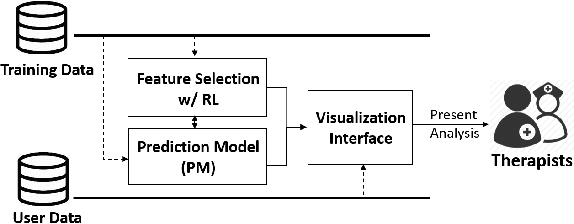Opportunities of a Machine Learning-based Decision Support System for Stroke Rehabilitation Assessment
Paper and Code
Mar 02, 2020



Rehabilitation assessment is critical to determine an adequate intervention for a patient. However, the current practices of assessment mainly rely on therapist's experience, and assessment is infrequently executed due to the limited availability of a therapist. In this paper, we identified the needs of therapists to assess patient's functional abilities (e.g. alternative perspective on assessment with quantitative information on patient's exercise motions). As a result, we developed an intelligent decision support system that can identify salient features of assessment using reinforcement learning to assess the quality of motion and summarize patient specific analysis. We evaluated this system with seven therapists using the dataset from 15 patient performing three exercises. The evaluation demonstrates that our system is preferred over a traditional system without analysis while presenting more useful information and significantly increasing the agreement over therapists' evaluation from 0.6600 to 0.7108 F1-scores ($p <0.05$). We discuss the importance of presenting contextually relevant and salient information and adaptation to develop a human and machine collaborative decision making system.
 Add to Chrome
Add to Chrome Add to Firefox
Add to Firefox Add to Edge
Add to Edge